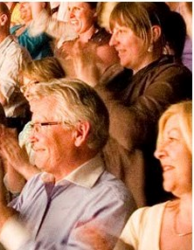
Women and The Catholic Church
If you’ve read any of Margaret Donnelly’s books, you know she believes in the value of a strong female protagonist. Diana Giller of the Pan American Development Bank plays a heroic role in “The Song of the Goldencocks,” and Kemi conquers her evil boss in “The Path of Lord Jaguar.” Through her autobiographical book, “The Spirits of Venezuela,” and her life story as it’s unfolded since that book was written, Donnelly has ignited in me a series of questions regarding the suppression of women leaders in the world’s major religions.
In “Spirits,” Donnelly’s intuition, intellectual curiosity, and supernatural clues lead her to participate in the syncretic blend of indigenous shamanism and Catholicism followed by many Venezuelans. As Donnelly continued to explore Venezuelan spirituality, she found herself pursuing leadership as a priestess – the mother of this Venezuelan tradition, brought from Nigeria by slaves – because Catholicism doesn’t allow women to attain such levels of leadership.
In considering Donnelly’s path, I am left wondering why in the world women are still prohibited from becoming priests in the Catholic Church as well as other religions. Women have gained so much in terms of political equality. We can be presidents and prime ministers. Why, then, can’t we also serve as a bishop or pope? The thought of a female pope actually seems shocking, even for a feminist woman like myself.
Consider this: there are 1.5 billion Catholics in the world, and the pope is one of the most powerful political figures around. For all of these followers, women are still blocked from holding any real authority over spiritual matters. What message does this send? Are we still supposed to buy in to the old patriarchal idea that women are somehow less capable or less intelligent than men? What might women accomplish in the world if given the full confidence of their religion, their God?
In searching for answers to such questions, I found out that Pope Francis has said that female ordination is not a topic that is open for discussion, even though he is willing to consider a variety of progressive changes in the Catholic Church, including the welcoming of gays. Of his inclusive perspective, he has said, “Everyone can share in some way in the life of the Church; everyone can be part of the community, nor should the doors of the sacraments be closed for simply any reason.”
Why, then, is the topic still closed for discussion? Contrary to what some say, the Church has changed radically over time. In fact, the Church has changed policies numerous occasions over its long history. For example, St. Augustine codified the doctrine that the “Jews killed Christ,” so that anti-Semitism became a driving force for the Church and Church policy over so many centuries. The Crusades made the Church into a major military power and killing machine for a time. And, perhaps most important to this discussion, women used to be allowed to hold positions of leadership in the Church.
According to the group Roman Catholic Women Priests, epigraphic evidence exists of women bishops in history. Until at least the ninth century the Church gave women the full sacramental ordination of deacons. Women priests existed in the West during the 4th and 5th centuries according to literary evidence, and according to epigraphic evidence. More recently, Ludmila Javorova is an example of a woman who was ordained as a priest in 1970.
If women have been allowed to serve as Catholic leaders before, why not now? Women hold the potential to add richer, fuller perspectives to the current male-only leadership. Particularly in areas of the world where women are most oppressed and impoverished, the Church has an opportunity to influence major change.




